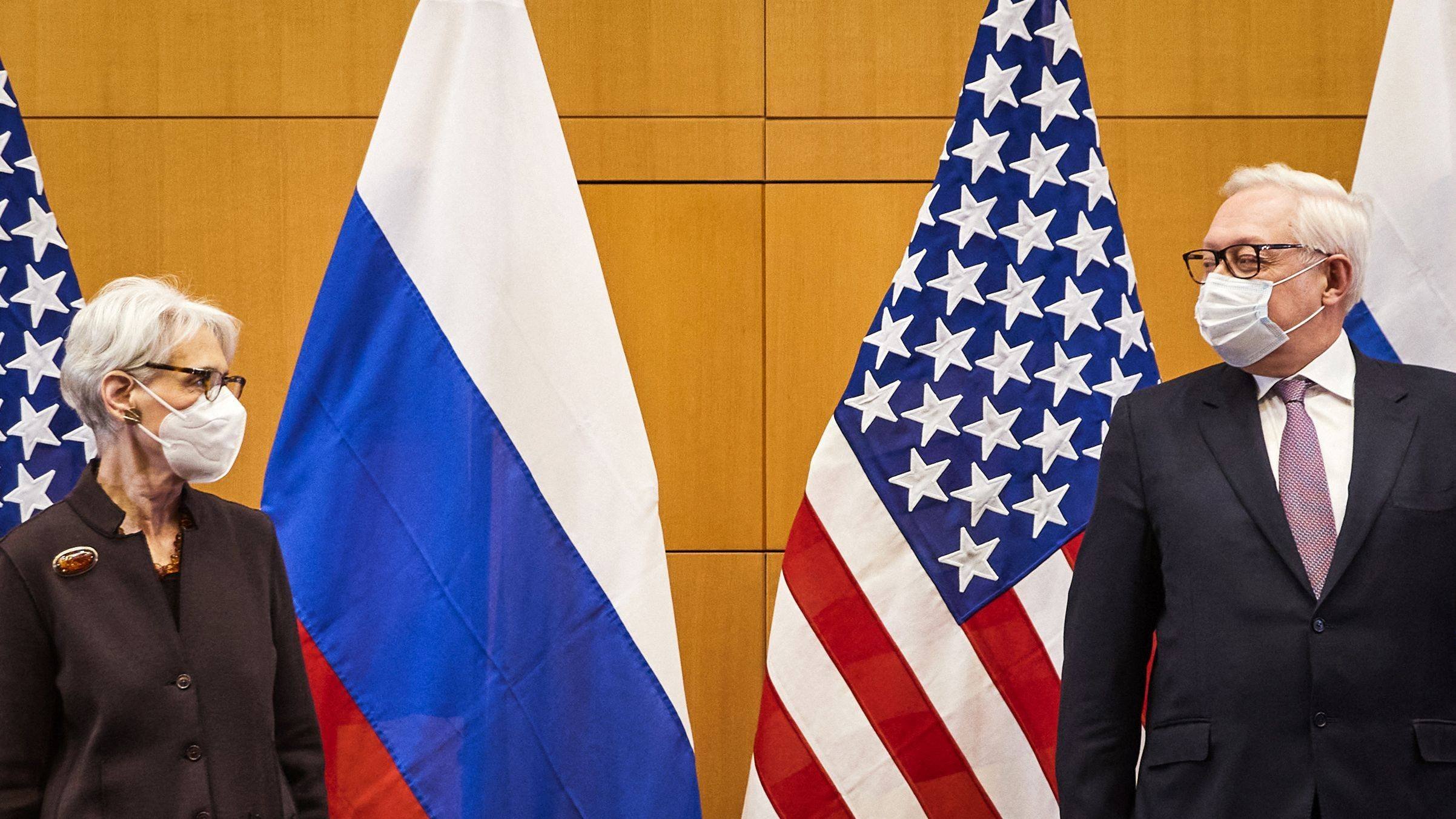The impasse between Russia and emboldened NATO countries and their U.S. guarantors continued this week as Moscow’s delegation swapped the State Department for the Organization for Security and Cooperation in Europe (OSCE).
Russian Dep. Foreign Minister Sergei Ryabkov described them as “unsuccessful,” while Russia’s envoy to the OSCE Alexander Lukashevich explained that the Euro-U.S. bloc wasn’t taking Russian national security concerns seriously.
Meanwhile, the grimmest rhetoric heard in Europe for decades continued as OSCE’s American and Polish representatives stoked fear of the first armed conflict on the continent since 1945.
“We’re facing a crisis in European security. The drumbeat of war is sounding loud,” American Ambassador Michael Carpenter told reporters, while Zbigniew Rau, the Polish Ambassador said that “it seems that the risk of war in the OSCE area is now greater than ever before in the last 30 years”.
Indeed, pieces, such as this one from the advisor to NATO Secretary General Stoltenberg Evelyn Farkas, are beginning to appear in Western media outlets that begin to write the Russian Federation, with all her nuclear fury, into a kind of Saddam Hussein role of regional megalomaniac who must be stopped, complete with calls for a willing Euro-American military coalition, and the inevitable comparison to Adolf Hitler.
“If we don’t hear constructive response to our proposals within a reasonable timeframe and aggressive behavior towards [Russia] continues, we’ll have to take necessary measures to ensure strategic balance and eliminate unacceptable threats to our national security,” Lukashevich said to reporters.
It was much the same story on Monday when the U.S. met with Ryabkov, with the State Dept. claiming Russian demands were mysterious and unclear, all the while the backbenchers in the Biden Administration like Antony Blinken and National Security Advisor Jake Sullivan railed about Russian aggression and an imminent invasion of Ukraine, a claim which despite being wrong several weeks ago, Sullivan reiterated to reporters on Thursday.
“There is no illusions on the part of any of us who have been dealing with this issue about what the prospects are for potential conflict and potential military escalation by Russia,” Sullivan said.
Going on record
“No illusions” is an interesting way to describe the issue of the presence of Russia’s troops several hundred miles from their border with Ukraine, as Sullivan has been wrong about a potential invasion of their southern neighbor, a claim he’s been making now since before Christmas.
Another illusion on record was Blinken’s warning to Kazakhstan’s president that “one lesson in recent history is that once Russians are in your house, it’s sometimes very difficult to get them to leave,” made in response to the Kazakh president’s request for Russian-led security bloc (CTSO) peacekeepers to help maintain order during the massive protests that took place in early January. The Russian troops have since begun returning home, less than a week after being deployed.
Furthermore, US delegation leader Wendy Sherman seems to have many illusions, saying at the conclusion of Monday’s talks “we’re just at the beginning, and we don’t know where all of this is headed quite yet”. Sherman, who is the Dep. Secretary of State, should know as the delegation leader, at least through Sullivan if not the U.S. Intelligence services, that the Kremlin is preparing for a potential invasion of Ukraine.
In which case Ryabkov, and Foreign Minister Sergei Lavrov’s quite-public statements that Moscow’s demands for a reduced NATO military presence on her borders and a permanent denial of NATO membership for Ukraine should have been front and center in Sherman’s mind when the talks began.
There seems to be either a lack of inter-agency communication; that the officials the Biden team are sending to parley are not informed about the conditions on the ground, or there is a deliberate attempt to diffuse the tensions in Europe through instilling confusion, in order to, as Anatol Lieven, senior research fellow on Russia and Europe at the Quincy Institute for Responsible Statecraft describes, “kick the can of U.S.-Russia relations down the road”.
“If U.S. negotiators approach the talks in Geneva in this spirit, then their intention will be to soothe Russian feelings with vague bromides and commitments to further talks,” writes Lieven at Quincy. “This approach has run its course. It is clear from the latest Russian demarche that the Russian government will simply not accept a relationship with the West that continues along these lines”. WaL
PICTURED PICTURED: Deputy Secretary of State Wendy Sherman and Deputy Russian Foreign Minister Sergei Ryabkov at the talks. PC: Denis Balibouse. AFP. Fair Use.
If you think the stories you’ve just read were worth a few dollars, consider donating here to our modest $500-a-year administration costs.



